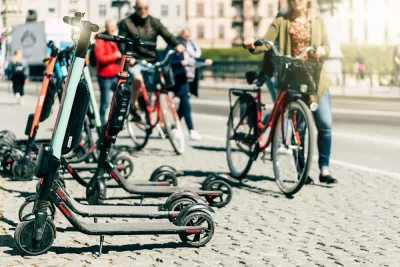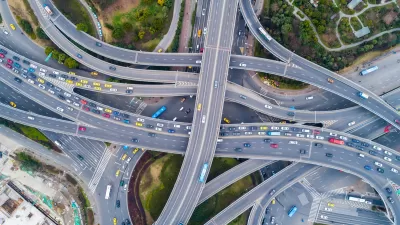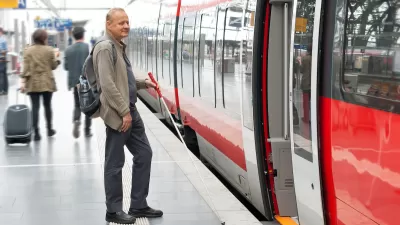Mobility leaders from around the country met to discuss multimodal transportation, equity, and accessibility.

As Cailin Crowe reports in Smart Cities Dive, “mobility leaders gathered in Chicago at the National Shared Mobility Summit last week to discuss how to sell U.S. residents on a less car-centric future, in addition to solutions for providing more accessible and racially equitable shared mobility options.”
Crowe highlights the main topics discussed. “In light of incoming federal investments for local infrastructure, many conference speakers emphasized the need to support shared mobility by first ensuring that basic infrastructure needs are being met.” For example, Disability Rights Education & Defense Fund Government Affairs Liaison Carol Tyson said that “Innovation is about having a bench at a bus stop and accessible pedestrian signals and curb ramps.”
“Panelists also emphasized the urgent need for racial equity within mobility, which includes addressing how cities enforce traffic laws.” Crowe writes that “Many safety and transportation groups, including the Governors Highway Safety Association, have also supported a ‘safe system’ approach that ‘acknowledges human error and seeks to minimize fatalities and serious injuries.’ Meanwhile, other transportation leaders have called on city officials to look at how street design and speed limit policies could help encourage safe driving instead of relying on police enforcement.”
Some panelists centered community input as key to building equitable and effective transportation systems. “Several panelists also emphasized the importance of compensating community members for their input and collaboration. Compensation allows community members to participate more fully in various projects, [Heidy Persaud, director of transportation equity at the nonprofit Center for Neighborhood Technology] said.”
FULL STORY: Mobility leaders dream of a less car-centric future

Maui's Vacation Rental Debate Turns Ugly
Verbal attacks, misinformation campaigns and fistfights plague a high-stakes debate to convert thousands of vacation rentals into long-term housing.

Planetizen Federal Action Tracker
A weekly monitor of how Trump’s orders and actions are impacting planners and planning in America.

San Francisco Suspends Traffic Calming Amidst Record Deaths
Citing “a challenging fiscal landscape,” the city will cease the program on the heels of 42 traffic deaths, including 24 pedestrians.

Defunct Pittsburgh Power Plant to Become Residential Tower
A decommissioned steam heat plant will be redeveloped into almost 100 affordable housing units.

Trump Prompts Restructuring of Transportation Research Board in “Unprecedented Overreach”
The TRB has eliminated more than half of its committees including those focused on climate, equity, and cities.

Amtrak Rolls Out New Orleans to Alabama “Mardi Gras” Train
The new service will operate morning and evening departures between Mobile and New Orleans.
Urban Design for Planners 1: Software Tools
This six-course series explores essential urban design concepts using open source software and equips planners with the tools they need to participate fully in the urban design process.
Planning for Universal Design
Learn the tools for implementing Universal Design in planning regulations.
Heyer Gruel & Associates PA
JM Goldson LLC
Custer County Colorado
City of Camden Redevelopment Agency
City of Astoria
Transportation Research & Education Center (TREC) at Portland State University
Jefferson Parish Government
Camden Redevelopment Agency
City of Claremont





























